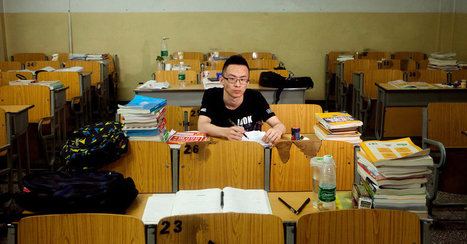The findings are preliminary, but the weakness in China’s higher education system is especially striking because Chinese leaders are pressing universities to train a new generation of highly skilled workers and produce innovations in science and technology to serve as an antidote to slowing economic growth.
The government has built hundreds of universities in recent years to meet soaring demand for higher education, which many families consider a pathway into the growing middle class. Enrollment last year reached 26.2 million students, up from 3.4 million in 1998, with much of the increase in three-year polytechnic programs.
But many universities, mired in bureaucracy and lax academic standards, have struggled. Students say the energetic and demanding teaching they are accustomed to in primary and secondary schools all but disappears when they reach college.
“Teachers don’t know how to attract the attention of students,” said Wang Chunwei, 22, an electrical engineering student at Tianjin Chengjian University, not far from Beijing. “Listening to their classes is like listening to someone reading out of a book.”
Others blame a lack of motivation among students. Chinese children spend years preparing for the gaokao, the all-powerful national exam that determines admission to universities in China. For many students, a few points on the test can mean the difference between a good and a bad university, and a life of wealth or poverty.
When students reach college, the pressure vanishes.
“You get a degree whether you study or not, so why bother studying?” said Wang Qi, 24, a graduate student in environmental engineering in Beijing.
The merits of the Chinese education system are a perennial subject of debate, in the United States as much as in China. The Obama administration has held up the stronger performance of Chinese high school students on international exams in math, science and reading as an example of stagnation in the United States.
Critics argue that Chinese teachers place an unhealthy emphasis on test preparation and rote memorization at the expense of critical thinking skills and creativity. They also say international exams overstate the strength of China’s system because they exclude students from poorer regions.

 Your new post is loading...
Your new post is loading...
 Your new post is loading...
Your new post is loading...











